Filter by
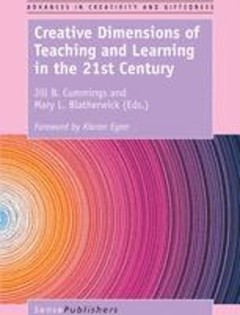
The Importance of art in children’s writing education
“We have a huge vested interest in education because it is education that’s meant to take us into this future that we can’t grasp” (Robinson, 2006). This statement made by Sir Ken Robinson points to what should be a universal concern to make education our most important societal coping strategy. He highlights especially the need for arts education if we are to nurture the creative and c…
- Edition
- -
- ISBN/ISSN
- 9789463510479
- Collation
- -
- Series Title
- -
- Call Number
- 371.102 BRE i
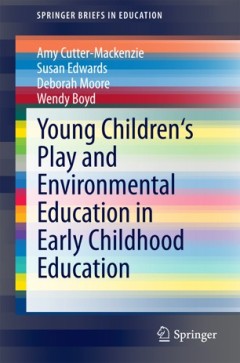
Young children's play and environmental education in early childhood education
In an era in which environmental education has been described as one of the most pressing educational concerns of our time, further insights are needed to understand how best to approach the learning and teaching of environmental education in early childhood education. In this book we address this concern by identifying two principles for using play-based learning early childhood environmental …
- Edition
- -
- ISBN/ISSN
- 9783319037400
- Collation
- 88 p.; 22 cm
- Series Title
- -
- Call Number
- 372.21 YOU y
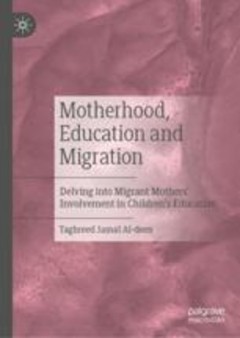
Mothering work: supporting children’s education at home
This chapter documents and examines the extensive and diverse range of work the mothers do to support their children’s education. Participating in educational activities at home requires mothers to deploy a range of strategies to generate different types of capital for their children in relation to their education at home and their role and status within the family. This chapter examines how …
- Edition
- -
- ISBN/ISSN
- 9789813294295
- Collation
- -
- Series Title
- -
- Call Number
- 371.192 ALD m
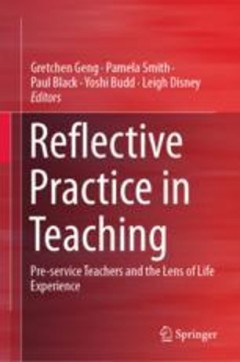
The Right response!: discovering necessary skills for teachers and parents to…
Having grown up in a small town and having strong ties within the community, I found it a challenge to balance the personal/professional balance needed by educators when dealing with children and their families inside and outside of the school context. By observing my mentor teachers, I slowly began to identify key principles needed to handle the teacher/parent relationship, which led me to inv…
- Edition
- -
- ISBN/ISSN
- 9789811394751
- Collation
- -
- Series Title
- -
- Call Number
- 372.1192 YOU r
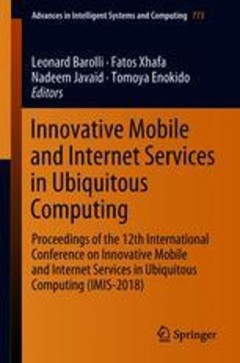
Design and implementation of cognitive ystem of children’s education based …
This paper mainly introduces the creative design of a children’s cognitive system based on RFID. The electronic tag is affixed to the real learning object, and the card reader is carried by the children. The main functions to be realized are vivid images, which give children quick and vivid knowledge of objects. Through the education of physical objects that can be touched, they can be vividl…
- Edition
- -
- ISBN/ISSN
- 9783319935546
- Collation
- -
- Series Title
- -
- Call Number
- 372.1192 HON d
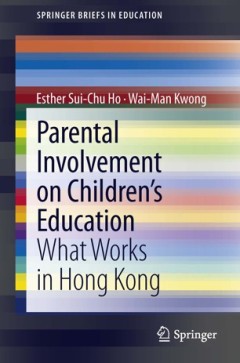
Parental involvement on children’s education
The decentralization policy and school-based management in Hong Kong has elevated the issue of home–school cooperation to the agenda of educational reform, and has since fueled a growing interest in promoting parental involvement as one of the strategies in enhancing children’s education and improving accountability of schools to communities (Epstein 1990; Ho and Willms 1996; Jeynes 2005, 2…
- Edition
- -
- ISBN/ISSN
- 9789814021999
- Collation
- 162 p.; 22 cm.
- Series Title
- -
- Call Number
- 372.1192 EST p

Current research in bilingualism and bilingual education
This book covers research topics in bilingual education, language policies, language contact, identity of bilingual speakers, early bilingualism, heritage languages, and more, and provides an overview of current theory, research and practice in the field of bilingualism. Each chapter is written by a specialist in the field. Part I focuses on the numerous and heterogeneous relations between lang…
- Edition
- -
- ISBN/ISSN
- 9783319923963
- Collation
- xix, 241 p.; 22 cm.
- Series Title
- ultilingual Education; Vol. 26
- Call Number
- 404.2 CUR c
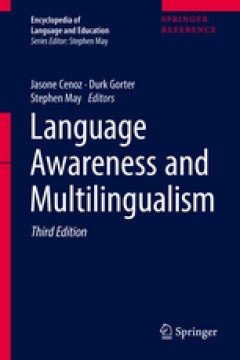
Language awareness and multilingualism
In this third, fully revised edition, the 10 volume Encyclopedia of Language and Education offers the newest developments, including an entirely new volume of research and scholarly content, essential to the field of language teaching and learning in the age of globalization. In the selection of topics and contributors, the Encyclopedia reflects the depth of disciplinary knowledge, breadth of i…
- Edition
- 3rd edition
- ISBN/ISSN
- 9783319022413
- Collation
- xxxi, 412 p.; 22 cm.
- Series Title
- Encyclopedia of Language and Education
- Call Number
- 370.1175 LAN l
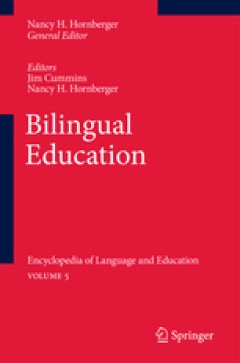
Bilingual education : encyclopedia of language and education volume 5
This volume addresses bilingual education, the use of two (or more) languages of instruction in education. Although bilingual education is available in some form in most countries, it is frequently the subject of political debate, especially where a bilingual program is set up to serve migrant populations. The volume offers •A thorough analysis of a range of conceptual issues in bilingual edu…
- Edition
- -
- ISBN/ISSN
- 9789048193127
- Collation
- xxviii, 372 p.; 22 cm.
- Series Title
- -
- Call Number
- 370.1175 BIL b
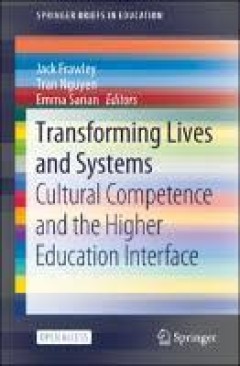
Transforming lives and systems: Cultural Competence and the higher education …
This open access book explores the transformative experiences of participants in the University of Sydney’s National Centre for Cultural Competence (NCCC) programs. The establishment of the NCCC was viewed as a critical point of departure for developing an institution-wide agenda of cultural competence. The NCCC’s work since its inception reflects efforts to lay important foundations for cu…
- Edition
- -
- ISBN/ISSN
- 9789811553516
- Collation
- -
- Series Title
- -
- Call Number
- 370 FRA t
 Computer Science, Information & General Works
Computer Science, Information & General Works  Philosophy & Psychology
Philosophy & Psychology  Religion
Religion  Social Sciences
Social Sciences  Language
Language  Pure Science
Pure Science  Applied Sciences
Applied Sciences  Art & Recreation
Art & Recreation  Literature
Literature  History & Geography
History & Geography